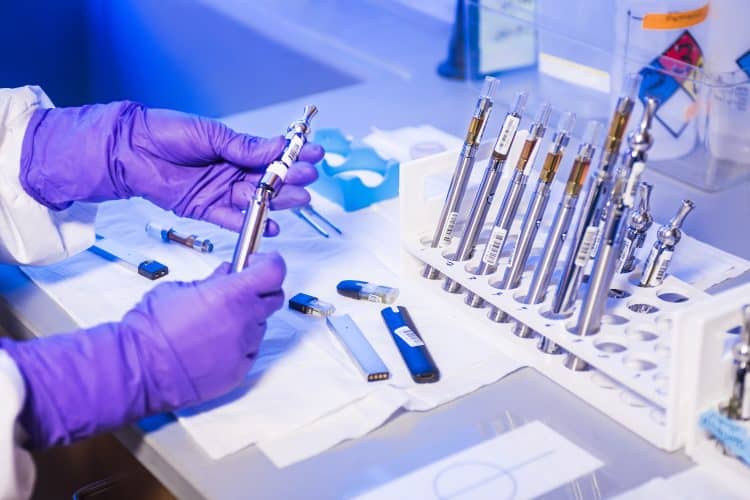In a momentous study by the Yale School of Public Health, it was found that increased rates of e-cigarette and cannabis use are not causally linked to greater instances of E-cigarette or Vaping Product Use-Associated Lung Injury (EVALI). [1]
The study took the number of EVALI cases by state up to January 2020, and compared them to pre-outbreak levels, i.e., prior to the inception of the 2019 ‘vaping crisis’ that caused a huge scare around the United States and led to a sweeping Center for Disease Control investigation. It turns out, as the usage of e-cigarettes and cannabis increases, the number of cases does not increase in correlation. [1]
“If e-cigarette or [cannabis] use per se drove this outbreak, areas with more engagement in those behaviors should show a higher EVALI prevalence,” said Assistant Professor Abigail Friedman, who pioneered the study.
Friedman further added, “This study finds the opposite result. Alongside geographic clusters of high EVALI prevalence states, these findings are more consistent with locally available e-liquids or additives driving the EVALI outbreak than a widely used, nationally-available product.”
Specifically, the study looked at each state’s total EVALI cases for a range of age groups, from 12-64. [1] The total was sourced from reporting on the second week of January 2020. To set up predictors as adult e-cigarette and cannabis use, rates from 2017-2018 were utilized.
A direct correlation between e-cigarette and cannabis use and cases of EVALI could not be found; in fact, significant negative associations were reported. In other words, more cannabis and vaping use was associated with less EVALI. It was noted that states in which cannabis is illegal had increased cases of EVALI, pointing to the usage of locally made, black market products not under the auspices of state regulations. The states in question are Utah, North Dakota, Minnesota, Delaware, and Indiana.
In all, the study’s conclusion raises the most important point—whether policymakers are actually helping with prohibitions on e-cigarette and cannabis use. [1] It’s not beyond the pale to suggest that people will gravitate to the black market to find products that are illegal.
References:
- [1] Friedman AS. Association of vaping‐related lung Injuries with rates of e‐cigarette and cannabis use across US states [ahead of print]. Addiction. 2020. doi:10.1111/add.15235. [Impact Factor: 6.851; Times Cited: n/a]












